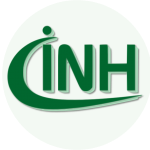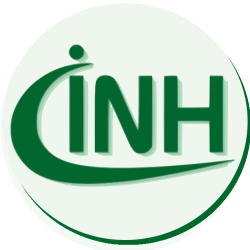
Mrs. Karin Maag, member of the Health Committee of the German Bundestag, has recently spoken out on several occasions against the reimbursement of homeopathy by the statutory health insurance funds. She did use a number of arguments which, in the opinion of the INH, require clarification. For this reason, Mrs. Maag has received the following Open Letter from the Homeopathy Information Network:
______________
 Mrs.
Mrs.
Karin Maag MdB
Place of the Republic 1
11011 Berlin
Mail to: karin.maag@bundestag.de 29.07.2019
Informational to: Federal Minister of Health, Mr Jens Spahn
Homeopathy and statutory health insurance
Dear Mrs Maag,
We have learned from the press reporting that in the discussion about the reimbursement of homeopathy by statutory health insurers you have clearly positioned yourself against plans to abolish it. At the same time, however, we can also see from this reporting that you are apparently not sufficiently informed about the aims and arguments of the scientifically based critique of homeopathy and that you also argue in part outside the context of the problem.
We would therefore like to make a few comments on this.
We, the Information Network Homeopathy, raise awareness since 2016 that homeopathy is a sham therapy that has neither ever been able to provide valid proof of efficacy nor to eliminate the incompatibility of its basic assumptions with scientifically proven principles. There is a broad consensus on this in the scientific world. We refer exemplarily to the clear judgement of the EASAC, the advisory board of the Association of European Academies of Science, which was published in 2017.
Against this background, we also see the discussion on the reimbursability of homeopathy by statutory health insurance funds. And against this background we also contradict the thesis that there must be a coexistence of homeopathy and science. Either one recognises the relevance of the scientific evaluation of homeopathy – then the consequences are obvious. Or one doesn’t – then one speaks out in favour of equating facts and opinions.
The core problem lies in the fact that the current reimbursability strengthens the public reputation of homeopathy, which is scientifically and, in our opinion, also unacceptable from the point of view of health policy. It lends additional credibility to the already widespread misconception among the population that homeopathy is a well-established form of therapy, which at any rate must be regarded as equivalent to scientific medicine.
Part of this misconception is that homeopathy is wholly or partly identical with naturopathy. But nothing could be more wrong than an equation of homeopathy and naturopathy. Nothing is “natural” in the esoteric assumption that there is a “principle of similarity” in nature that is related to human interests. There is nothing “natural” about the postulate that through dilution and ritual shaking, a “spiritual medicinal power”, today called “vibrations” or “energy”, will not only pass into the solvent, but will also become essentially “stronger”. There is no doubt that the public has not yet been sufficiently informed about all this.
A solidarity community such as the statutory health insurance needs an intersubjectively defined framework whose criterion is the general advantage. This framework is guaranteed by evidence-based medicine, which requires proof of efficacy of means and methods based on recognised scientific methodology. Homeopathy cannot satisfy this requirement; it is marketed under “medicinal product” only because the Medicines Act exempts it from this requirement.
We are fully aware that, as you are quoted, “many people feel better off taking homeopathic medicines”. The explanations for this have been known for a long time, but they have nothing to do with the specific medical effectiveness of homeopathy. These are contextual effects of various kinds that occur with any kind of treatment, often even with pure attention.
We even see in this one of the central dangers of the application of homeopathy. Anyone who has had “good experiences” with homeopathy with minor health disorders, or perhaps only with mood disorders, runs the risk of relying on it even in the case of more serious illnesses. The patient “conditions” himself to the medically ineffective homeopathy. The associated potential danger is obvious; the more homeopathy is erroneously perceived as a “gentle and side-effect-free” alternative to normal medicine, the less the risks will be perceived.
On the question of reimbursability in the statuary health solidarity system, the cost aspect plays a completely subordinate role, if at all. It is not a question of whether the expenses for homeopathy are “peanuts” or not, not of whether the system can “afford it”. It’s about drawing clear border lines in the matter.
Medicine is what has been proven to work beyond contextual effects. This defines the boundary between necessary, appropriate and economic care – the object of health insurance according to the social law – and what belongs to the realm of subjective, personal well-being. Which everyone may use for themselves on their own responsibility and at their own expense. We therefore consider it a reversal of the facts to refer insured persons who rightly reject homeopathy as a medical method to health insurers who do not offer their reimbursement.
It is therefore in the interests of the solidarity community that the health insurance reimbursement, which suggests a medical significance of homeopathy, should not be continued. It would be even more desirable if homeopathy were to be deprived of its special status in pharmaceutical law, which exempts it from scientifically based proof of efficacy. It is by no means a question of banning homeopathy. For everyone who wants to use it – informed! – it remains available.
We are therefore convinced that the well-understood patient interest requires a correction of the decision per reimbursement. Of course, regardless of the clear facts, this is also a political matter of balancing rights and interests. We have no doubt, however, that the arguments put forward against reimbursement of homeopathy are so far-reaching and in the public interest that they cannot be outweighed by other particular interests.
For discussions and further information, we are at your disposal at any time in any form you like.
Yours sincerely
For the Homeopathy Information Network
Dr. Natalie Grams.
Dr. Ing. Norbert Aust
Dr. Christian Lübbers


2 Replies to “Open letter to Karin Maag, Member of the Bundestag – Reimbursement of Homeopathy”
Comments are closed.